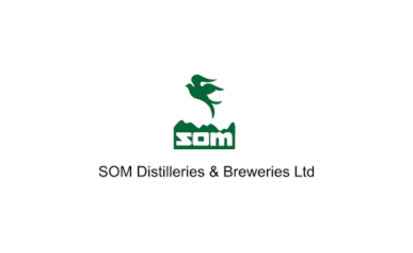Impact of ‘Make in India’ on the Whiskey industry
Industry experts sharing insights on the impact of "Make In India" on the Whiskey Industry.

Industry experts sharing insights on the impact of “Make In India” on the Whiskey Industry.

Teja Chekuri
Managing Partner at Ironhill India
The ‘Make in India’ initiative has had a positive impact on the entire beverage industry, including whiskey. At Ironhill India, we’ve seen first-hand how local production can drive innovation and quality. For whiskey producers, ‘Make in India’ encourages the use of locally sourced ingredients and traditional techniques, fostering a sense of pride and authenticity in their products. This initiative not only supports local economies but also positions Indian whiskeys as competitive on the global stage. Our experience with local sourcing and sustainable practices in microbrewing reflects the broader benefits that ‘Make in India’ brings to the spirits industry.
Ayaesha Gooptu
Head of Domestic Spirits, Bacardi India
“The ‘Make in India’ initiative has certainly sparked a powerful homegrown wave in the whiskey industry, driving significant growth in locally produced premium options category. This shift is further evidenced by the 23% growth in local whiskey brands last year, compared to a more modest 11% for imported brands. These statistics underscore a major milestone for Indian whiskey, reflecting a burgeoning consumer preference for high-quality, homegrown products. This homegrown movement is reshaping the market, as Indian consumers increasingly favour local brands that offer premium quality and exclusivity.
At Bacardi, we are thrilled to be part of this dynamic landscape with the launch of LEGACY, our first ever made-in-India premium whisky. LEGACY exemplifies the spirit of this homegrown wave, crafted to resonate with the sophisticated tastes of Indian whiskey enthusiasts. It’s a product made for India, in India – and its pan–India success speaks volumes about the ability to excite consumers with localized offerings. This is a truly exciting era for Indian whiskey, driven by a strong ‘vocal for local’ sentiment and a passion for excellence!”


Vikas Suri
Vice President – Operations and Development at Lords Hotels and Resorts
The Indian whiskey market is booming, outpacing all other spirits. Distillers, both old and new, are producing high-quality whiskey to meet growing demand, keeping the market strong. With strategic moves by major players, the market is set for significant growth. Rare and collectible whiskeys are also becoming popular investments. Overall, the future of Indian whiskey looks bright.
Namit Vijh
Cluster General Manager Rajasthan & Agra, Radisson Hotel Group, and General Manager Radisson Gurugram, Udyog Vihar
In recent years, India has experienced a significant transformation in its whisky industry, redefining the appreciation of premium Indian single malts. Brands such as Indri, Amrut, Rampur, and Paul John have emerged as symbols of national pride and exceptional craftsmanship. By the end of 2024, Indian single malts accounted for over 50% of the domestic market share. The ‘Make in India’ initiative has been pivotal in this shift, promoting local production, reducing reliance on imports, and driving investments in distilleries, thereby creating jobs. Furthermore, this initiative has enabled Indian whisky brands to meet global standards and expand their presence in international markets.


Abhilash Matam
Director of Operations, Kochi Marriott Hotel
The ‘Make in India’ initiative has significantly impacted the whiskey industry, fostering growth, innovation, and economic development. Here’s a closer look at its effects:
Boost to Domestic Production
‘Make in India’ has boosted domestic whiskey production, encouraging existing distilleries to expand and new players to enter the market. This increase meets growing demand and reduces reliance on imports.
Foreign Investment and Joint Ventures
The initiative has made India more attractive to foreign investors. International whiskey brands are setting up local facilities and forming joint ventures with Indian companies, bringing advanced technologies and premium products to the market.
Improved Infrastructure and Supply Chain
Improved infrastructure under ‘Make in India’ benefits the whiskey industry by streamlining supply chains. Better roads, transportation networks, and storage facilities reduce distribution costs and times, enhancing efficiency.
Job Creation and Skill Development
The whiskey industry’s expansion is creating jobs in agriculture, manufacturing, marketing, and retail. The initiative also emphasizes skill development, ensuring a trained workforce to support the industry’s growth.
Promotion of Indian Brands
‘Make in India’ supports the promotion of Indian whiskey brands domestically and internationally. This helps Indian brands compete with global players, increasing their market share and reputation.
Innovation and Quality Improvement
The initiative fosters a competitive environment that drives innovation and quality improvement, ensuring Indian whiskeys meet international standards and boosting consumer confidence.
In summary, ‘Make in India’ is transforming the whiskey industry by enhancing production, attracting investment, improving infrastructure, creating jobs, promoting Indian brands, and driving innovation.
Akash Bansal
Director of Operations, Novotel Kolkata Hotel & Residences
A. On this World Whiskey Day, it’s exciting to discuss the significant impact of the ‘Make in India’ initiative on the whiskey industry. This movement has paved the way for a wave of beautifully
crafted, experimental Indian whiskeys that are making their mark on the global stage. Many of these innovative spirits are receiving prestigious accolades and recognition, showcasing the exceptional quality and creativity of Indian distillers. The emphasis on local production has not only bolstered the domestic market but has also positioned India as a noteworthy player in the international whiskey scene. As a result, we can look forward to more ground-breaking and highly acclaimed Indian whiskeys emerging in the future.


Amit Wadhera
Director- F&B and Production Operations, THE Park New Delhi
“The ‘Make in India’ initiative has significantly impacted the whiskey industry by encouraging domestic production and investment. The focus on local production has enabled companies to better align their offerings with Indian tastes and preferences while benefiting from reduced import duties and logistical costs.
At THE Park New Delhi, we proudly offer a selection of Indian single malt brands like Amrut, Rampur, etc. in our bars and restaurants. These exquisite choices have been exceptionally well-received by our guests, reflecting their growing appreciation for premium, homegrown whiskeys.
Several factors, including the surge in international awards for Indian single malts and a generation open to embracing local brands, have catalyzed the transformation of India’s whiskey industry.”
Ameay Dube
Restaurant and Beverage Operation Manager, Grand Hyatt Mumbai Hotel and Residences
Make in India’ has had a significant impact on the whiskey industry which has helped boost local distilleries production leading to a rise in Indian whiskey brand, foreign investment is attracted and there has been a sizeable number of joint venture, increased focus on local quality manufacturing to produce premium product, enhanced global presence, support for local farmers and reduction in import dependence


Ravindra Bhandari
Food And Beverage Manager, The Westin Pushkar Resort & Spa
Indian whisky brands are elevating small towns like Rampur, Jodhpur, Jaisalmer, and Indri onto the global stage, standing shoulder to shoulder with industry giants such as Pernod Ricard, Diageo, and Macallan. This growth is part of a cultural renaissance, with bottles that reflect India’s rich heritage and aspirations. Indri’s labels, adorned with gold Devanagari script, and Paul John’s bottles, featuring elephant motifs, exemplify the country’s history and artistry.
The unique characteristics of Indian soil and climate contribute to a distinct whisky production process, setting it apart from Scotland and other regions. Here are the key differences:
Climate: India’s tropical climate, marked by high temperatures and humidity, accelerates the aging process of whisky. This rapid maturation allows Indian whiskies to develop optimal flavor profiles in a shorter time frame (around 3-5 years) compared to other regions.
Soil Composition: The diverse soil types across India, including laterite, black cotton, and alluvial soils, affect the growth of barley and other grains used in whisky production. The mineral content and characteristics of these soils impart unique flavors to the whisky.
Water Sources: The water used in Indian whisky production often comes from local rivers and other sources, which have different mineral compositions compared to Scottish water.
Barley and Grain Varieties: Indian distilleries often use locally grown barley and other grains that are adapted to the country’s soil and climate. This results in different starch and protein levels compared to Scottish barley.
Overall, the combination of climate, soil, water, and barley varieties creates a unique environment for whisky production in India, leading to distinct flavor profiles that differentiate Indian whiskies from those produced in Scotland and other regions.
Ranjeet Singh
Beverage Manager. Sheraton Grand Bengaluru Whitefield hotel and Convention Center
India is considered as one of the world’s fastest-growing beverage markets is the alcohol sector. The reasons are an increasing urban population and rising disposable income, which are anticipated to fuel the development of India’s alcohol market. Additionally, premiumization as well as growth in the out of home segment are driving value growth in the alcohol market. People became accustomed to the taste of more expensive wines and spirits due to an increase in home consumption during the pandemic. They started choosing premium brands and began emphasizing quality over quantity in their beverages as a result. Consumers are increasingly gravitating toward boutique brands and premium niches, and they are willing to pay more for a unique experience. Prior to the introduction of fine dining, there was little alcohol consumption in clubs or restaurants in India. Today with a thriving fine dining culture present in all metro cities.


Monu Thankappan
Food & Beverage Manager, Le Meridien Gurgaon, Delhi NCR
Make in India: A Toast to Domestic Whiskey
“Make in India” has empowered the Indian whiskey industry. Local distilleries are thriving, creating jobs and boosting production. Reduced import duties on barley are fueling innovation, leading to a wider variety of high-quality domestic whiskeys.
This focus on local craftsmanship is fostering a unique Indian whiskey identity, attracting international attention. Consumers now have a wealth of exciting choices, from established brands to emerging craft distilleries.
“Make in India” raises the bar for Indian whiskey, making it a global player on the world stage while celebrating its distinct domestic heritage.
Gaurav Bisht
Food and Beverage Manager,Hyatt Regency Pune & Residences
The Indian whisky scene is exploding! Forget the stereotypes – think premium labels, exciting cask finishes, and a rise of world-class single malts. This isn’t just a trend, it’s a cultural revolution driven by innovation. The “Make in India” initiative is fueling this fire, with domestic brands conquering over 50% of the market and grabbing international attention.
We’re not just bystanders. Our bar Single Malt & Co. at Hyatt Regency Pune & Residences boasts a curated selection of over 50 distinguished single malts, a haven for those seeking an unparalleled journey into the heart of India’s booming whisky culture. Join us and raise a glass to the future of Indian whisky – it’s undeniably bright!


Pankaj Shinde
F&B Manager, Sayaji Pune
Indian single malt whiskey has made a history by giving a big surprise to global giants in sales for the first time by contributing 53 % of total sale for the year 2023.The success of Make in India brands has led to international giants like Diageo and Pernod Ricard entering the Indian market with their local brands. This signals a new era for the country’s whiskey industry. It’s not every day that such a feat is achieved. Indian whiskey makers have come a long way.
The popularity of make in India brands has prompted international giants like Diageo and Pernod Ricard, who primarily source their single malts from Scotland, to enter the Indian market with their own local brands. Diageo introduced Godawan in 2022, while Pernod recently launched its first Indian single malt, Longitude 77.
India is a fast growing and diverse market, and the younger audience is inclined towards, experimenting with niche products. It has observed that foreign brands are now feeling the pressure as Indian companies gain prominence in the market.
‘It’s time for Make in India’
Vishal Tawde
Head Mixologist, Saz, Mumbai
The ‘Make in India’ initiative has boosted the whiskey industry by attracting investment, encouraging the use of local ingredients, and improving production standards. This has enhanced the global reputation of Indian whiskey and increased its market presence both domestically and internationally. (Head Mixologist) Saz, Mumbai

Whisky which is made in india have a huge cultural renaissance. The bottles themselves tell a story of India’s heritage and aspirations. Indri’s labels, adorned with gold Devanagari script, and Paul John’s bottles, embellished with elephant motifs, speak of a land rich in history and artistry Whisky which is made in india have a huge cultural renaissance. The bottles themselves tell a story of India’s heritage and aspirations. Indri’s marks, enhanced with Devanagari script, and Paul John’s bottles, embellished with elephant motifs, speak of a land rich in history
and artistry. The Indian single malts hold over 53% share in the domestic market. Traditional Indian whisky companies will need to continue to innovate and adapt to changing consumer preferences in order to stay competitive
Traditional Indian whisky companies will need to continue to innovate and adapt to changing consumer preferences in order to stay competitive
Harry Simon Peter, Beverage Manager – BLVD Club
—-
 English
English French
French German
German Italian
Italian



